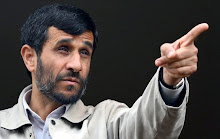Mirror by Sylvia Plath
I love this one, but it hurts.
Mirror
I am silver and exact. I have no preconceptions.
What ever you see I swallow immediately
Just as it is, unmisted by love or dislike.
I am not cruel, only truthful---
The eye of a little god, four-cornered.
Most of the time I meditate on the opposite wall.
It is pink, with speckles. I have looked at it so long
I think it is a part of my heart. But it flickers.
Faces and darkness separate us over and over.
Now I am a lake. A woman bends over me,
Searching my reaches for what she really is.
Then she turns to those liars, the candles or the moon.
I see her back, and reflect it faithfully.
She rewards me with tears and an agitation of hands.
I am important to her. She comes and goes.
Each morning it is her face that replaces the darkness.
In me she has drowned a young girl, and in me an old woman
Rises toward her day after day, like a terrible fish.
 Sylvia Plath was born in Boston, Massachusetts, on October 27, 1932. She spent part of her short life in England, and married the English poet Ted Hughes. In 1963, Plath published a semi-autobiographical novel, The Bell Jar, under the pseudonym Victoria Lucas. Then, on February 11, 1963, during one of the worst English winters on record, Plath wrote a note to her downstairs neighbor instructing him to call the doctor, then she committed suicide. She was the first poet to win a Pulitzer Prize after death.
Sylvia Plath was born in Boston, Massachusetts, on October 27, 1932. She spent part of her short life in England, and married the English poet Ted Hughes. In 1963, Plath published a semi-autobiographical novel, The Bell Jar, under the pseudonym Victoria Lucas. Then, on February 11, 1963, during one of the worst English winters on record, Plath wrote a note to her downstairs neighbor instructing him to call the doctor, then she committed suicide. She was the first poet to win a Pulitzer Prize after death.
Mirror
I am silver and exact. I have no preconceptions.
What ever you see I swallow immediately
Just as it is, unmisted by love or dislike.
I am not cruel, only truthful---
The eye of a little god, four-cornered.
Most of the time I meditate on the opposite wall.
It is pink, with speckles. I have looked at it so long
I think it is a part of my heart. But it flickers.
Faces and darkness separate us over and over.
Now I am a lake. A woman bends over me,
Searching my reaches for what she really is.
Then she turns to those liars, the candles or the moon.
I see her back, and reflect it faithfully.
She rewards me with tears and an agitation of hands.
I am important to her. She comes and goes.
Each morning it is her face that replaces the darkness.
In me she has drowned a young girl, and in me an old woman
Rises toward her day after day, like a terrible fish.
 Sylvia Plath was born in Boston, Massachusetts, on October 27, 1932. She spent part of her short life in England, and married the English poet Ted Hughes. In 1963, Plath published a semi-autobiographical novel, The Bell Jar, under the pseudonym Victoria Lucas. Then, on February 11, 1963, during one of the worst English winters on record, Plath wrote a note to her downstairs neighbor instructing him to call the doctor, then she committed suicide. She was the first poet to win a Pulitzer Prize after death.
Sylvia Plath was born in Boston, Massachusetts, on October 27, 1932. She spent part of her short life in England, and married the English poet Ted Hughes. In 1963, Plath published a semi-autobiographical novel, The Bell Jar, under the pseudonym Victoria Lucas. Then, on February 11, 1963, during one of the worst English winters on record, Plath wrote a note to her downstairs neighbor instructing him to call the doctor, then she committed suicide. She was the first poet to win a Pulitzer Prize after death.
 Stanley Kunitz
Stanley Kunitz 


